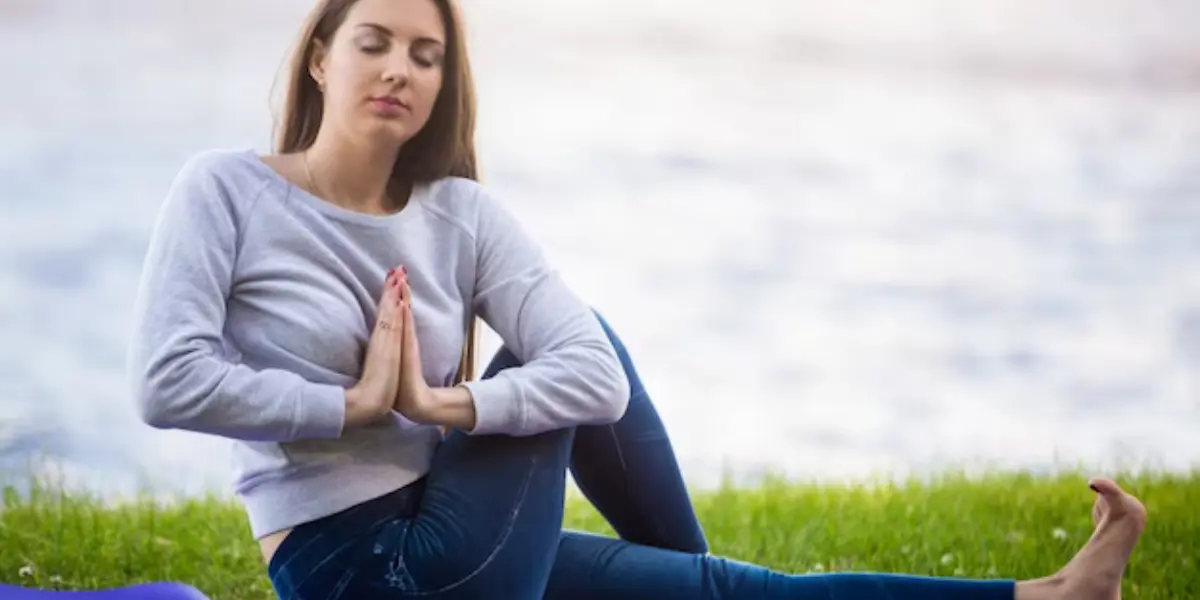Anxiety is a normal and adaptive response to a situation that might be dangerous or could impact our lives in any way. However, it becomes a problem only when the anxious person is excessively scared of something or someone.
It could interfere with daily functioning and become a problem that often needs to be managed. There are multiple types of anxieties including panic disorders, generalized anxiety disorders, social anxiety disorders, specific phobias, Obsessive-compulsive disorder, and post-traumatic stress disorder.
Though there is a distinction in their kind, they all are related to intrusive thoughts and feelings that overcome logical reasoning. Many people assume the worst possible outcomes which makes them susceptible to sudden triggers and new ones too. This article will cover anxiety exercises you can do to relax your mind.
What Causes Anxiety Problems? Risk Of Anxiety Disorders
Before we discuss the causes, we shall look at the symptoms briefly. Firstly, there could be a set of physical symptoms overpowering the patient including shivering, fast heartbeat, rapid breathing, and fatigue. Secondly, the psychological symptoms include excessive worry, impulsive thoughts, and difficulty in memorizing.

Thirdly the emotional symptoms could range from fearfullness to irritability and to insomnia. Lastly, behavioral symptoms could include panic attacks and fear of facing any situation or doing the same things repeatedly. Nevertheless, the causes for these symptoms include:
1. Biological Factors
There are certain biological factors that could affect the intensity of your anxiety and your response to a certain situation. This includes genetics, the chemistry of the brain, and the neurotransmitters that are part of a complex system.
2. Environmental Factors
Environmental factors include events that could trigger certain memories or events that remind the person of a previous situation that brought about a bad outcome.
3. Personality
It could be a part of the personality like individuals who seek perfectionism could be anxious.
4. Medical Conditions
Chronic medical conditions can also trigger anxiety in certain cases like cardiovascular issues.
5. Substance Abuse
People who expose themselves to drugs can also face anxiety if they stop using it or when facing withdrawal.
Anxiety Exercises To Help You Relax: The Best Exercises for Anxiety
Several relaxation exercises can be effective in managing anxiety. It is important to note which one works for you the best and adopt one accordingly. Some of them are:
- Deep Breathing– One of the most popular relaxation techniques, deep breathing is all about activating the body’s relaxation response and reducing stress and feelings of anxiousness. To perform this simple exercise, you need to lie back comfortably and then inhale slowly through your nose, expand your chest, and then exhale slowly after counting to four through your mouth. This could be repeated as much as needed.
- Progressive Muscle Relaxation– The progressive muscle relaxation technique aims to release physical stress and promote a sense of calm and composure. It is to be performed by applying pressure on each muscle and then letting it relax after a minute. You could work your way up from the foot.
- Mindfulness Meditation– This has been gaining traction and includes focusing on your breath, your body sensations, or perhaps a static object to keep your concentration. When your mind wanders, you can always bring yourself back to reality and assure yourself of a peaceful outcome. It can help you cope with difficult situations, should they come.
- Guided Imagery– As the name suggests, one must close their eyes and imagine a peaceful place including a forest or a beach that could bring in a sense of calm like it is supposed to. This exercise aims to harness the power of visualization and help you achieve your solace and peace.
- Grounding Techniques– These could help you return to reality by helping you concentrate on things that are in your control. For instance, you could start naming things you see in a room or things that you can easily point to in any setting.
- Yoga– Gifted by the Eastern philosophical minds, yoga has various poses that help the body and mind relax and help achieve a body-mind connection. Flexibility and mindfulness are the desired outcomes of the exercise.
- Autogenic Training– This includes repeating certain facts about your body that are true. According to researchers, the focus should be on the warmth and heaviness of a body part for instance. This is based on the idea that concentrating on warmth could put stress at rest.
- Breath Focus– It is as simple as it sounds. All you have to do is concentrate on breathing and then feel every exhale and inhale as you take them. I can not only calm the mind but also bring about a focus.
- 4-7-8 Technique– Inhale through your nose and hold it for four seconds, hold your breath for 7 seconds and then exhale for 8 seconds.
- Box Breathing– This is usually done in a gap of 4 seconds. Inhale for 4, hold for 4, and then exhale for 4 before repeating the cycle to calm your nervous system.
- Alternate Nose Breathing– This is one of the techniques mentioned in the yoga textbooks. All you have to do is hold your nostrils alternatively while breathing through the other.
- Abdominal Breathing– Use one hand on your chest and the other on your abdomen as you breathe in and breathe out. You need to look at your abdomen and chest falling and rising to develop a deeper connection towards the self.
- Breath Counting– Inhale and exhale and then breathe and count to 10. Repeat this a few more times and you will feel relaxed.
Also Read:- Can Vitamin D and Magnesium Really Help Treat Anxiety? Benefits Of Magnesium And Vitamin D

Final Result
Anxiety attacks can be threatening and can affect you adversely. The causes of most are shocking events in the past, there is no certain way to stop them from recurring. However, you can use a few of these exercises to make your senses clear and help you deal with the emotions that are fierce.
Connecting with like-minded individuals or a therapist could bring you some closure. Lean on your loved one for support and let them listen to your qualms. However, you should go in for regular checkups and medications as necessary.
References:
- Relaxation techniques for health. (2016).
https://nccih.nih.gov/health/stress/relaxation.htm - How to overcome fear and anxiety. (n.d.).
https://www.mentalhealth.org.uk/publications/overcome-fear-anxiety - Anxiety management: The 10 best anxietytechniques. (n.d.).
http://www.anu.edu.au/students/health-wellbeing/mental-health/anxiety-management-the-10-best-anxiety-techniques